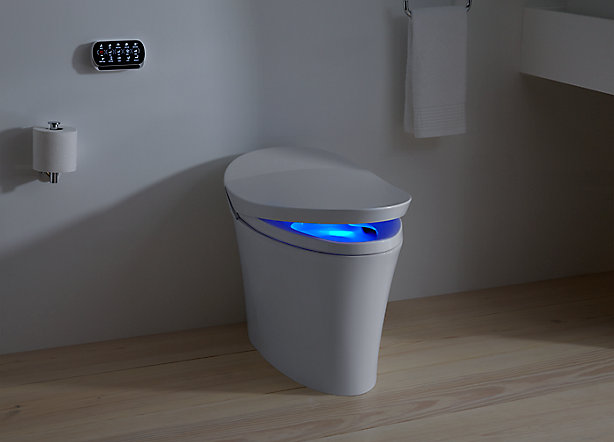In recent times, the idea of solar powered toilet systems has gained traction among environmental advocates, engineers, and industry professionals. As the globe confronts the pressing challenges posed by climate change and limited resources, innovative solutions like these offer a sustainable and effective alternative to conventional sanitation methods. The incorporation of solar energy into toilet systems stands out not only for its eco-friendliness but also as a transformative solution for sanitation in remote and less-developed regions.
As the quest for sustainable living intensifies, solar powered toilet systems are becoming more essential. These systems harness solar energy to function, thereby decreasing reliance on traditional energy sources and reducing environmental impacts. This article explores the details of these systems, examining their advantages, potential drawbacks, and the overall influence they hold on the sanitation landscape.

How Solar Powered Toilet Systems Work
At the core of solar powered toilet systems are photovoltaic panels that convert sunlight into electricity. This generated energy powers various components of the toilet, including pumps, fans, and heating units. This efficient, economical process makes it particularly suitable for areas with abundant sunlight but limited electricity access.
A standout feature of these systems is their capacity to treat waste directly on-site, minimizing the need for complex sewage infrastructure. This is especially advantageous in rural or isolated areas where constructing traditional sewage systems is impractical. By managing waste locally, solar powered toilet systems also contribute to water conservation, a vital resource in numerous regions. Discover more about the future of toilet technology.
Challenges and Factors to Consider
Despite the numerous advantages, solar powered toilet systems also face certain challenges. One significant concern is the initial installation cost. Even though solar technology prices have decreased, the upfront investment remains considerable. Furthermore, regular maintenance and specialized technical skills are necessary to keep these systems running smoothly.
Another factor is the reliance on sunlight. In areas with limited sunshine, particularly during winter, the effectiveness of these systems can be diminished. Therefore, its crucial to have backup systems or hybrid models capable of utilizing alternative energy sources when required.
Environmental Impact and Sustainability
The environmental advantages of solar powered toilet systems are considerable. By decreasing dependence on fossil fuels, these systems help lower greenhouse gas emissions. Additionally, they reduce water usage as many designs require little to no water for waste processing.
Moreover, by treating waste on-site, these systems mitigate pollution and the contamination of water bodies, fostering a cleaner and healthier environment. This aligns with global initiatives for achieving sustainable development goals, particularly regarding clean water and sanitation. For a deeper dive into sustainable sanitation solutions, check out our related article.
Looking Ahead: Future Innovations
The outlook for solar powered toilet systems appears bright, with ongoing advancements in solar technology and waste management methods. Innovations like smart sensors and automation are being integrated to boost efficiency and user experience. These technological advancements are anticipated to enhance accessibility and affordability for a wider audience.
Additionally, as awareness of and demand for sustainable solutions rise, more investment from governments and organizations worldwide can be expected in researching and developing these systems. This may lead to broader integration of solar toilets in urban planning and public infrastructure initiatives.
Real-World Examples and Case Studies
Several successful examples of solar powered toilet systems can be seen around the world. In India, for example, these systems have been utilized in rural communities to tackle sanitation issues and enhance public health. Similarly, in Africa, solar toilets are aiding refugee camps and remote populations lacking traditional sanitation systems.
These case studies underscore the potential of solar powered toilet systems to revolutionize sanitation practices and uplift living standards, particularly for those in vulnerable situations. To learn more about the influence of smart sanitation solutions, explore our insight into smart toilets.
Conclusion
To sum up, solar powered toilet systems signify a major advancement in sustainable sanitation solutions. Their ability to operate independently from conventional energy and infrastructure makes them suitable for various environments, from urban centers striving to lower their carbon footprint to remote communities needing dependable sanitation options.
As technology continues to progress, and costs decrease, the adoption of these systems is likely to pick up pace, establishing them as a vital component of the future sanitation landscape. For further insights into the evolution of toilet technology, take a look at this fascinating external article.

Frequently Asked Questions
What are the benefits of using solar powered toilet systems?
Solar powered toilet systems provide a variety of advantages, such as reduced dependence on traditional energy sources, conservation of water, and local waste treatment, which minimizes environmental harm.
Are solar powered toilet systems financially viable?
Although the initial cost for installation can be high, the savings derived from energy and water over time render solar powered toilet systems a financially viable option. Furthermore, technological improvements are predicted to drive costs down even further.
How do these systems align with sustainability goals?
By leveraging renewable energy and lowering water usage, solar powered toilet systems significantly contribute to sustainability initiatives, harmonizing with global objectives for access to clean water and effective sanitation.
This article contains affiliate links. We may earn a commission at no extra cost to you.






